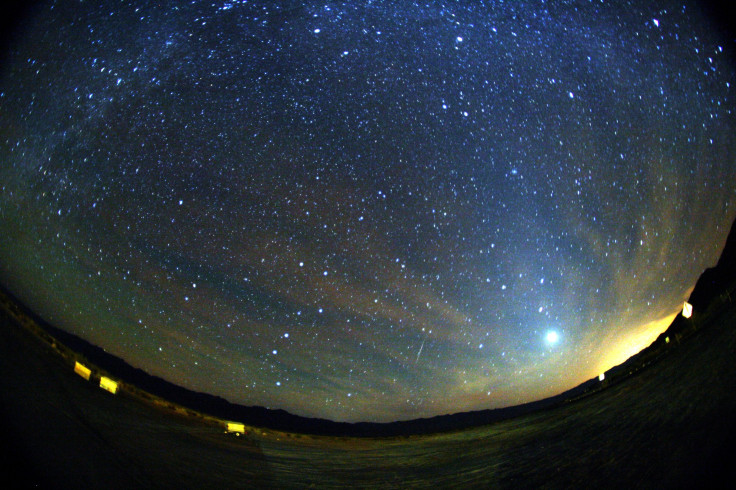Delta Aquariids 2021: Watch The Skies For The Meteor Shower's Peak This Week
KEY POINTS
- The Delta Aquariids peak on July 28-29
- It's the same night as the Alpha Capricornids' peak
- The much-loved Perseids are also active
Skywatchers have something to look forward to this week as the Delta Aquariids are set to peak Wednesday to Thursday. They may even catch some Alpha Capricornids or the much-awaited Perseids.
The Delta Aquariids are active for quite a long time, with meteor activity going from July 12 to August 23. The meteor shower's peak will be on July 28 to 29, but those who would like to catch a glimpse of it may already start doing so since it can produce "good rates for a week" centered on the evening of the peak, the American Meteor Society (AMS) said.
The Delta Aquariids are said to be faint meteors that are best watched from the southern hemisphere, though they can also be seen in mid-northern latitudes. They tend to lack fireballs and a persistent train, and the bright moon that's 74% full on the night of the peak may also provide a viewing obstruction.
That said, skywatchers may still want to take the time to catch the meteor shower as it will also peak on the same night as the Alpha Capricornids. According to the AMS, the Alpha Capricornids can be observed "equally well on either side of the equator." Although it's not considered to be a very strong meteor shower, producing only about five meteors per hour, it is known to produce bright fireballs during its period of activity, which runs from July 3 to August 15.
The Delta Aquariids are also considered to be a "warm-up" for the popular Perseid meteor shower, the Old Farmer's Almanac said. In fact, the Perseids are already active, as their period of activity runs from July 17 to August 26. As such, those who will watch the skies for the Delta Aquariids may also catch a glimpse of some early Perseid meteors streaking through the sky ahead of its August 11-12 maximum.
This means that those who will watch the skies this week may see meteors coming from different radiant points, with the Delta Aquariids appearing to come from the constellation Aquarius, and the Perseids appearing to radiate from the constellation Perseus.
Just like most meteor showers, the best time to view the Delta Aquariid peak will be after midnight and before dawn in "all time zones around the world," EarthSky noted. One important tip for best viewing is to watch the event from dark skies, away from bright lights.
Those who will watch the skies on the beloved Perseids' peak in August, when the moon's light won't be an obstruction anymore, may still see some Delta Aquariids as they will still be flying by then.

© Copyright IBTimes 2024. All rights reserved.






















